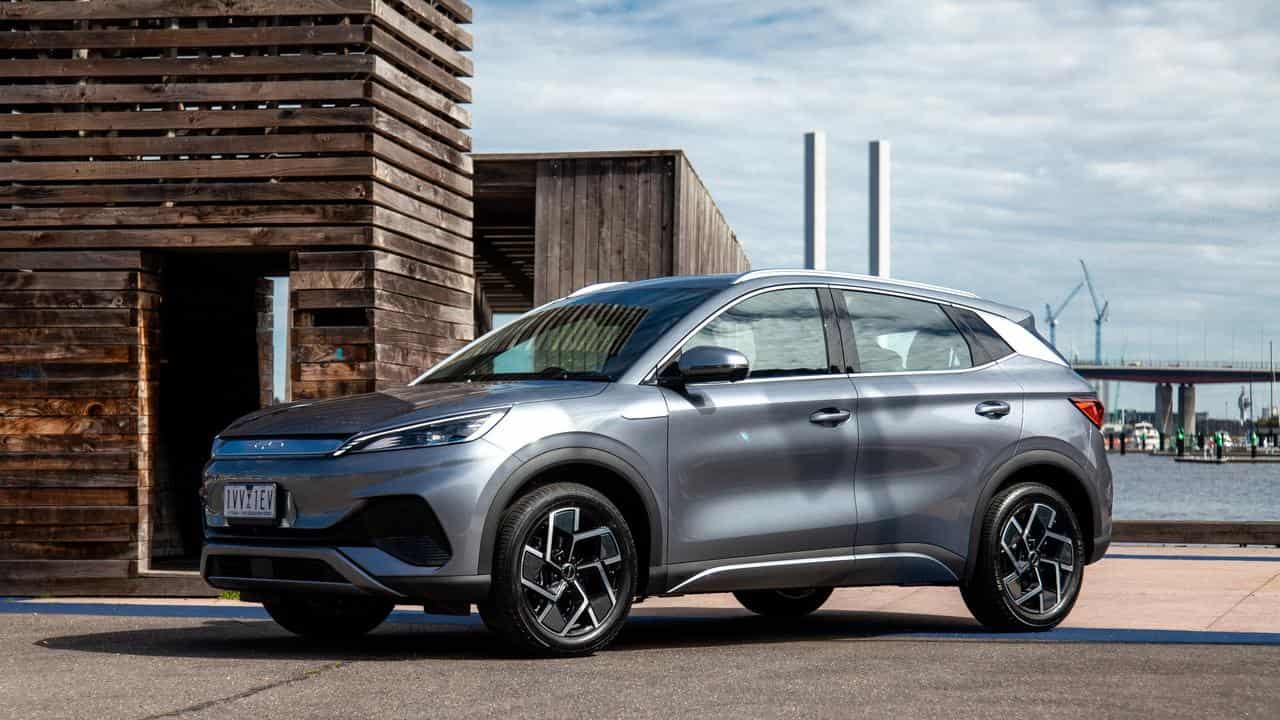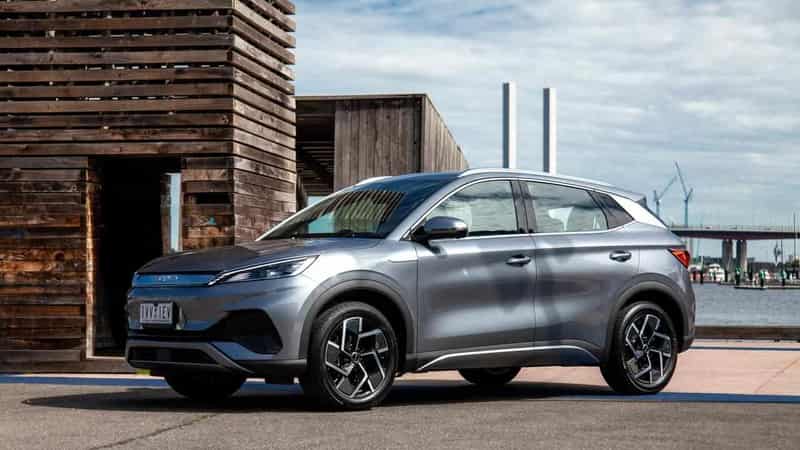
If you want to see an electric car, NSW is the best place in Australia to do it.
Drivers in the state have registered more of the next-generation vehicles than any other, with their number more than doubling over the past year.
But if you want to buy an electric car, NSW may soon be among the nation's worst options.
The state's premier, Chris Minns, has announced his government is considering scrapping its $3000 rebate on new electric vehicles up to $68,750, amid concerns the incentive could be raising the price of cars.
But industry experts say there's little evidence to support the claim, and removing assistance to get more drivers and businesses into electric cars could slow the trend and see the state fall behind.
NSW is one of four states offering a direct rebate on the price of some new electric cars, with subsidies ranging from $3000 to $6000.
Other incentives in Australia include stamp duty exemptions, zero-interest loans and registration discounts.
Electric Vehicle Council chief executive Behyad Jafari says the inducements have had a clear impact on the market.
Almost 130,000 electric cars were being driven in Australia by July and they made up 8.4 per cent of new car purchases in the first half of the year, up from 3.8 per cent in 2022.
"We have similar rebates available across the majority of states in Australia and as a result, we've seen electric vehicle sales triple over the last couple of years," he said.
"There's been a huge increase in confidence about electric vehicles, particularly among budget-savvy, lower income families."
Data also shows more than 23,000 electric cars were registered in NSW in the year to January 31 - an increase of 117 per cent.
Sydney retiree Sally Stockbridge intends to add to that tally in September when her BYD Atto 3 arrives.
Dr Stockbridge says she ordered a long-range version of the electric SUV after carefully monitoring the market and factoring the rebate into her budget.
"I was on a go-slow, hoping that NSW would go the way of Queensland and introduce a $6000 rebate but they're potentially going in the other direction, which is very short-sighted," she said.
"The $3000 is meaningful for me because I am now a retired person and any kind of rebate I can get makes the transition to an electric vehicle more possible."
Without the rebate, Dr Stockbridge says she may have postponed or abandoned the purchase.
Smart Energy Council's Audrey Quicke says that's the reaction many drivers may have if NSW removes its rebate in the September 19 state budget.
Countries with high electric vehicle uptake achieved it with "strong targets and goals, then aligned funding".
"Now is not the time to pull the rug out from under electric vehicles," she said.
"Transport emissions are high and rising, petrol prices are hitting record highs and governments should be doing all they can to support the switch to electric cars and other forms of transport."
Mr Minns said the NSW government was considering electric vehicle incentives after treasury advice showed the rebate was "pushing up the costs of EVs".
"The rebate and stamp duty incentives increase demand for EVs in a market where there is constrained supply," the advice said.
"As such, much of the benefit of these incentives is passed on to manufacturers in the form of higher prices."
The Victorian government cut its electric vehicle subsidy in June.
Tasmania's government is also reviewing incentives after a stamp duty exemption lapsed in May.
Australian Electric Vehicle Association treasurer Michael Day said it was important for all states and territories to deliver consistent policies to provide certainty for the automotive industry and confidence for consumers.
And contrary to NSW treasury advice, Mr Day said the price of many electric vehicles had fallen over the past year across all states.
"I cannot see any indication of raised prices," he said.
"I watch where Teslas are going and there have been price decreases due to market forces so I think they're wrong."
Mr Day says incentives particularly helped to encourage purchases of cheaper electric vehicles, where Australia was seeing greater competition.
Three small electric cars – the MG4, BYD Dolphin and GWM Ora – will break the $40,000 mark when they arrive in the local market in coming months.
If the NSW government scraps electric vehicle subsidies for these cars due to price concerns, Australian Electric Vehicle Association national president Chris Jones says it should reinvest in the transport transition.
"They could at least redirect it to other electric vehicle incentives such as more charging infrastructure or buying more electric vehicles for government fleets," he said.
"We need something that still advances the case for electrification rather than taking the money away and being done with it."









